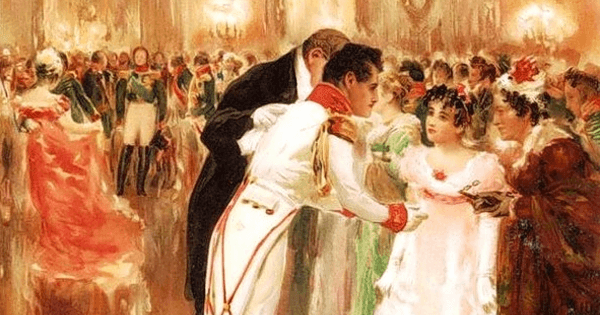By the Content of Its Characters
On rereading “War and Peace” in the age of radical sensitivity

All happy writers may be alike, but nowadays they’re also different in their own special national, ethnic, racial, religious, or sexual ways. Paradoxically, they’ve become individual by category. Yet I wonder whether any of my peers would mind being filed together in a box labelled 21st-century writer. Would anyone who buys our books mind being known as a 21st-century reader?
This question arose as I began to reread Leo Tolstoy’s War and Peace. My initial encounter with the epic in college was one of the most powerful experiences of my life, and I hoped to relive it this fall. Of course, one can never read the same book twice. The words may be identical, but the reader is, for starters, older. And if the book is good, the reader has been changed by the act of reading it. Lastly, the world, too, has changed between readings. Previous modes of perception have faded, and new ones have taken their place.
Manners of contemporary thinking inevitably affect, or infect, the way we look at everything from books to domestic relationships to science. I, for example, have refused a student’s request to miss a class because a story triggered an unpleasant memory. I’ve declared—in print—that I will not refer to individual students as “they.” I’ve made little of microaggressions. Yet from the opening pages of War and Peace, which are set in a high society salon, Tolstoy presents scene after scene that evoke an acutely à la mode queasiness. Although I would have sworn that I read books solely for their intrinsic qualities, I couldn’t shake the prick of what some people call political correctness. The French-speaking Russian aristocrats whom I’d adored as a 19-year-old did not seem as lovable as I recalled. Worse, it felt to me as if the author himself had changed.
When Pierre Bezukhov, arguably the protagonist in a novel that follows scores of lives, is introduced, he is described as “fat.” Well, that’s a bit harsh, but Tolstoy created Pierre, so if he says the man is fat, he is, and I wouldn’t want a euphemistic translation like “dietarily challenged.” Fat. Fat. Fat.
Nor is the crudeness of Tolstoy’s description of Pierre the author’s worst offense. Soon enough, Pierre will meet 13-year-old Natasha Rostov with whom—spoiler alert—he will become romantically involved. Granted, this will occur only after a few years have passed, but the modern hyperconsciousness about sexual behavior made me recoil. Had I failed to notice that Tolstoy was writing about a pedophile a century before Nabokov? On my first reading, this went over my head, beneath my notice. Now, it repulsed me.
Later, as the war sections commence, we get a callow militarism that is exacerbated when the usually reticent author willfully identifies with the Russian forces by referring to “our” army. In those sections, two of “our” soldiers, Prince Andrew Bolkonski and Count Nicholas Rostov (Natasha’s brother), are thrilled at the anticipation of battle. How male! How imperialistic! How 19th century!
If Pierre’s involvement with adolescent Natasha while “our” army is on the march wasn’t enough for me to throw the fat book across the room, the ultimate class offense finally struck me: nearly every character in War and Peace is noble. Sure, not all of them are wealthy, and some cadge handouts from more prosperous peers, but none of them consider the simple expedient of work. They exist on the page through the precondition of a vast oppressive apparatus of serf labor that trickles up to serve them.
How could the all-knowing Count Leo be so ignorant? How could the humanitarian Count Leo be so heedless of income inequality and his own privilege? Are the only ones who can truly understand Tolstoy’s characters Queen Elizabeth and King Hussein of Jordan and the Emperor of Japan and, though he may be a bit young, Barron Trump?
Yet when Prince Andrew falls at Austerlitz and lies wounded and perhaps dying on the field of battle amid the pandemonium of cannon, musketfire, and charging horses, he gazes up at the sky and thinks, “How quiet, peaceful and solemn … How was it that I did not see that lofty sky before? And how happy I am to have found it at last! Yes!” His epiphany reaches far beyond his genealogical circumstances, and because Tolstoy is a genius, we experience it with him. Likewise, when Nicholas fails to act as bravely as he dreams, his failure is a reminder of the reader’s own inability to rise to every occasion. Tolstoy allows his characters the freedom to act well or shabbily, and therefore enables us to judge them on the content of their character.
Perhaps my favorite scene in the book is Natasha’s first grand ball. She is so happy that “she noticed and saw nothing of what occupied everyone else … that Prince So-and-so and So-and-so did and said this and that … she did not even see the Emperor, and only noticed that he had gone because the ball became livelier.” Suddenly, the trappings of aristocracy fall away like rags, and the young girl’s eventual romance with an older man feels as wonderful as she does on that magical night.
Modern political consciousness, particularly on campus, is eager to uncover “our” nation’s and institutions’ sins and to erase the sinners’ names and the murals of their exploits from college walls. But the danger of judging previous generations of writers and presidents from the high moral mountain of today is that no one will be able to meet our standards and the walls—and libraries—will be empty by tomorrow. Purists willing to declare, “fine, wipe the corrupt slate clean,” should remember that someone in the not-so-distant future may look at them from an even higher peak, but even that is not so high as the one where Tolstoy lives.

